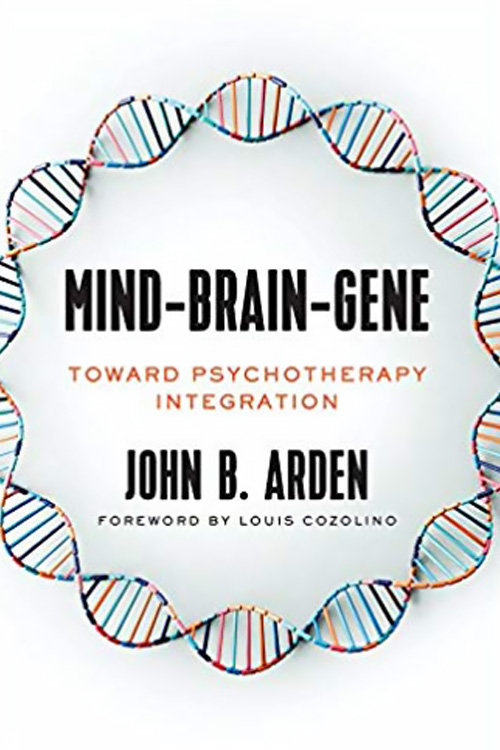 MIND-BRAIN-GENE – Toward Psychotherapy Integration by John Arden, PhD
MIND-BRAIN-GENE – Toward Psychotherapy Integration by John Arden, PhD
The evolution of psychotherapy in the 21st Century demands integration
Instead of choosing from the blizzard of psychotherapy schools of the past we must move toward finding common denominators among them. Similarly, today’s psychotherapy necessitates the integration of the mind and body not the past practice of compartmentalization of mental health and physical health. This book contributes to the sea change in how we conceptualize mental health problems and their solutions.
Mind-Brain-Gene describes the feedback loops between the multiple systems contributing to the emergence of the mind and the experience of the self. In so doing, it explains how our mental operating networks “self”-organize, drawing from and modifying our memory systems to establish and maintain mental health. This book synthesizes the research in psychoneuroimmunology and epigenetics with interpersonal neurobiology and research on integrated psychotherapeutic approaches.
Mind-Brain-Gene explores how insecure attachment, deprivation, child abuse, and trauma contribute to anxiety disorders and depression to produce epigenetic affects. One of the epigenetic effects described include the suppressed expression of the cortisol receptor gene resulting in less frustration tolerance and diminished resiliency. To help people suffering from anxiety and depression it is necessary to make sense of the multidirectional feedback loops between the stress systems and the dysregulation of the immune system that lead to those conditions. For example, people with chronic inflammation, including autoimmune disorders, such as type 2 diabetes and obesity, tend to suffer from depression, cognitive impairments, and low frustration tolerance
Mind-Brain-Gene explores how insecure attachment, deprivation, child abuse, and trauma contribute to anxiety disorders and depression to produce epigenetic affects. One of the epigenetic effects described include the suppressed expression of the cortisol receptor gene resulting in less frustration tolerance and diminished resiliency. To help people suffering from anxiety and depression it is necessary to make sense of the multidirectional feedback loops between the stress systems and the dysregulation of the immune system that lead to those conditions. For example, people with chronic inflammation, including autoimmune disorders, such as type 2 diabetes and obesity, tend to suffer from depression, cognitive impairments, and low frustration tolerance.
